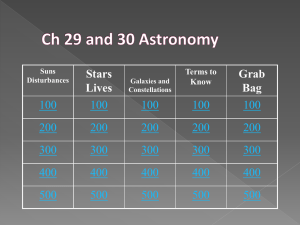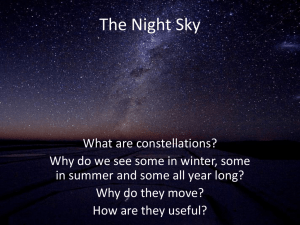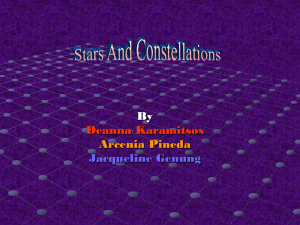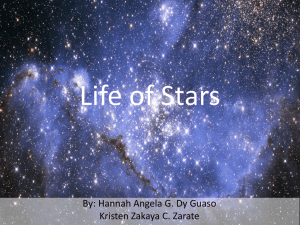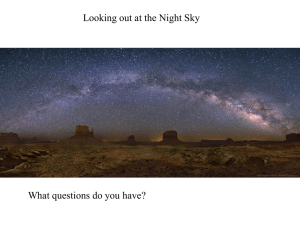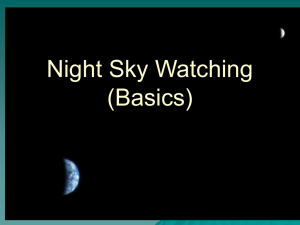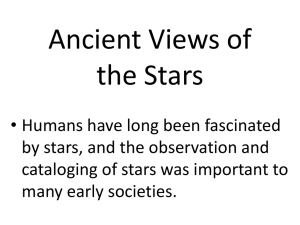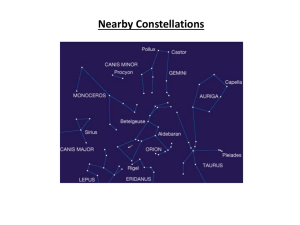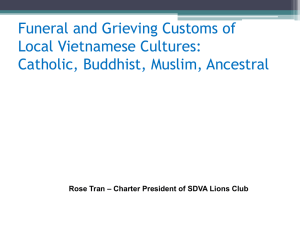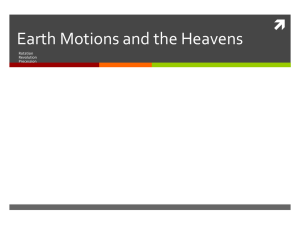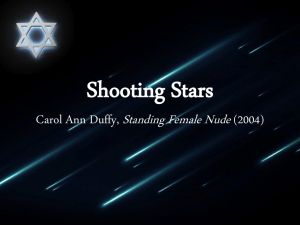File
advertisement
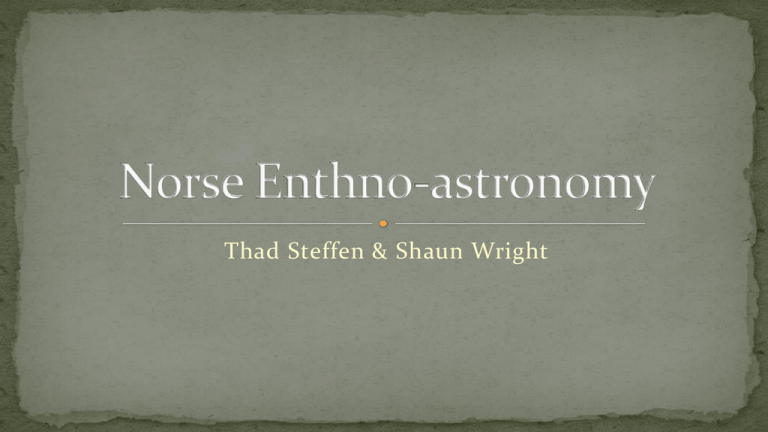
Thad Steffen & Shaun Wright Out of nothing emerged everything Ginnungagap (the mighty gap) – is what existed before the universe Comparable to Big Bang Theory Kalevala Expanse. Source: http://evetravel.files.wordpress.com/2012/02/thekalevala-expanse-10-ginnungagap.jpg?w=949 The world tree It’s branches are the heavens and it’s roots extend into the underworld Spans from the world of men to the realm of gods Responsible for many phenomena such as seasons and earthquakes The night sky was the canopy of Yggdrasill, and the stars were light from Asgard (where the gods lived)coming through the branches Yggrasill. Source: http://www.native-science.net/Creation.Myth.Norse-filer/image019.jpg Night Sky. Source: http://98.130.85.241/images/nightsky2f.jpg Ratatosk (gnaw-tooth) – the squirrel constellation. Consists of the main stars in Cassiopeia, with one star for its head, one for each foot, one for its body, and two for its tail. Dain (dormant) – one of the deer constellations in the branches of the World Tree, and here is associated with the smallest of the deer. Consists of two stars along its back leg, two stars along its front leg, two for its trunk, one star on its neck, the bright star Vega is its eye, and the four Lyra stars form its antler. Dvalin (sleeper) – one of the deer constellations, and here is associated with the second smallest of the deer. Consists of some of the same stars as Cepheus, with one star for each of its front foot and the North Star makes its rear foot, two stars for its trunk, one bright star is its eye, one star on its snout, seven stars make up its antlers. Duneyr (drooping-ears) – one of the deer constellations, the name associated with the second largest of the deer. Consists largely of the stars of the Great Bear, with two stars for its front leg, five stars for its rear leg, seven stars make up its body, two for its neck, one for its eye, and three for its antlers. Durathror (sluggish beast) – one of the deer constellations, the name associated with the largest of the deer. Consists of the Perseus constellation as its head and antlers and Auriga as its body, with one star for each of its three visible legs, six stars for its body, one star for its eye, one star for its snout, five stars make up its longer antler, three its shorter antler. Hellewagen – constellation of the wagon of the dead, that travels upon hellweg or Frauen Hilde Street (the Milky Way) to the underworld. There is good reason however to think that the constellation known as Pegasus was the original Hellewagen (perhaps also Odin's Wagon), consisting of four stars making up the wagon, with three stars making up its tongue. Night Sky. Source: http://98.130.85.241/images/nightsky2f.jpg Not much is known about Norse Astronomy, but as a sea-faring people they must have had an understanding of the positions of stars in the night sky One theory is that their written language (runes) came from constellations Facing North. Source: http://alynptyltd.tripod.com/TheRunicSky/RuneFigNth.gif Bifrost – The road from Asgard (Dwelling of the gods) to Midgard (Earth) The Norse believed that the Milky Way was the Bifrost Bifrost. Source: http://images.wikia.com/mythology/images/8/89/Bifrost_in_Thor.jpg Knowing the connections that the Norse made to what they saw in the sky could help in world-building when creating a race for a sci-fi or fantasy game. For instance, the idea that a written language came from the stars is a REALLY COOL idea. Too Human. Source: http://www.blogcdn.com/www.joystiq.com/media/2007/04/toohuman-425px.jpg Myths of Creation. (n.d.). Myths of Creation. Retrieved from http://www.native-science.net/Creation.Myth.Norse.htm Stephany, T. (n.d.). Norse Constellations. Norse Constellations. Retrieved from http://www.timothystephany.com/constellations.html Webber, A. (n.d.). The Runic Sky by Allan Webber. The Runic Sky by Allan Webber. Retrieved from http://alynptyltd.tripod.com/TheRunicSky/TheRunicSky.htm Bifrost. (n.d.). Bifrost. Retrieved from http://www.windows2universe.org/mythology/bifrost_milkyway.html
